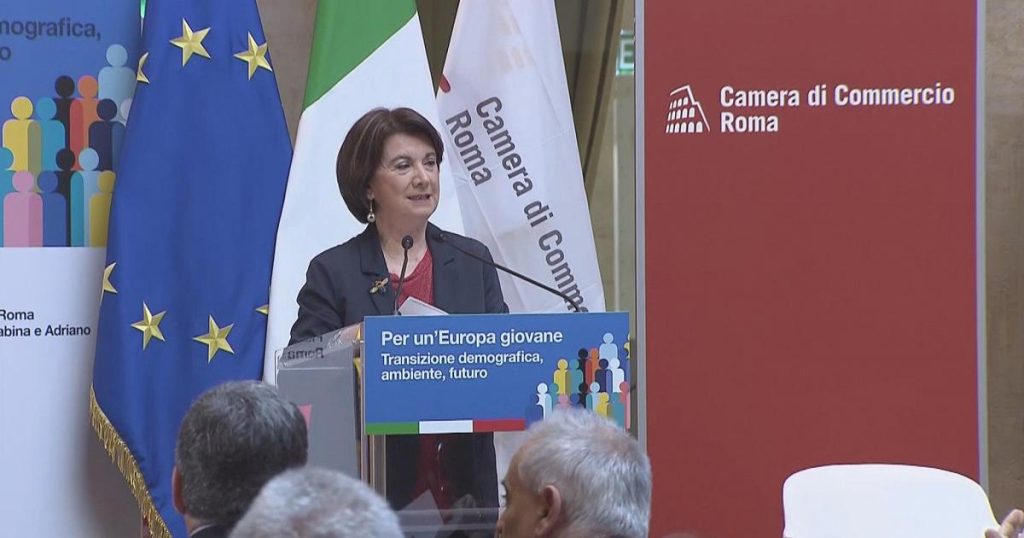Minister Eugenia Roccella addressed the issue of demographic decline in Europe, particularly in Italy, during a conference in Rome. She emphasized the gravity of the declining birth rate in Italy and the need for long-term efforts to address and reverse this trend. Roccella highlighted the impact of demographic decline on societal structures, pointing out the emergence of loneliness as a significant issue. She noted that as birth rates decrease, the dynamics of families and entire populations are altered, leading to widespread experiences of solitude in countries affected by demographic winter.
The minister stressed the importance of addressing demographic decline, noting that it negatively impacts various aspects of society including the environment, economy, and social cohesion. She emphasized that the Italian government has taken steps to address the issue, including establishing a ministry dedicated to promoting childbirth and addressing the challenges of demographic decline. Roccella also raised concerns about the implications of population decline on the environment, highlighting the abandonment of rural areas and loss of cultural heritage as consequences of shrinking populations. She emphasized the need for a holistic approach to environmental conservation that involves local communities and regional authorities in sustaining ecosystems and preserving cultural assets.
Roccella also discussed the role of immigration in addressing labor market imbalances caused by demographic decline. She acknowledged that immigration has been seen as a solution to offset decreasing birth rates in Italy, but stressed the importance of managing immigration flows responsibly and preventing illegal practices. The minister highlighted the need to balance the integration of immigrants into the labor market with efforts to promote childbirth and sustain the population. She emphasized that population decline not only affects social and economic systems but also has implications for the environment, underscoring the importance of preserving cultural and natural heritage in the face of shrinking populations.
The minister’s speech also touched upon the broader European context of demographic decline, noting that many countries across the continent are facing similar challenges related to declining birth rates. She highlighted the importance of addressing demographic decline at the European level and collaborating with other countries to find sustainable solutions. Roccella emphasized the need for a coordinated approach to promoting childbirth and supporting families in order to ensure the stability and sustainability of European populations. She reiterated that demographic decline poses complex challenges that require long-term strategies and cross-border cooperation to address.
In conclusion, Minister Roccella emphasized the interconnected nature of demographic decline, environmental conservation, and social wellbeing. She underscored the importance of recognizing the impact of shrinking populations on various aspects of society and the environment, calling for a holistic approach to addressing these challenges. Roccella highlighted the role of communities, local authorities, and regional entities in preserving cultural and natural heritage, while also promoting sustainable development and social cohesion. She concluded by stressing the need for concerted efforts at the national and European levels to address demographic decline and ensure a prosperous future for the continent.















